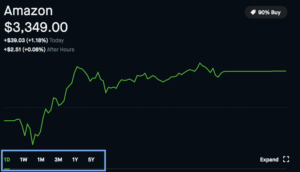
In recent years, Robinhood has emerged as a formidable player in the financial services industry, dramatically transforming from a fledgling startup to a leading contender. This article delves into the pivotal factors behind Robinhood’s remarkable turnaround, examining its strategies, innovations, and the broader market context that contributed to its success.
The Beginnings of Robinhood
Founded in 2013 by Vladimir Tenev and Baiju Bhatt, Robinhood was designed to democratize finance for all. The platform introduced commission-free trades, appealing to a new generation of investors. Initially, it faced skepticism from traditional brokerage firms, but its user-friendly interface and mobile-first approach quickly garnered a significant following.
Key Strategies for Success
1. Commission-Free Trading
Robinhood’s pioneering model of commission-free trading disrupted the brokerage industry. This strategy attracted millions of users, particularly millennials and Gen Z investors who were previously deterred by high trading fees. By eliminating commissions, Robinhood made investing more accessible and appealing to a broader audience.
2. Innovative Features
Robinhood continually introduced innovative features to enhance user experience. The platform’s intuitive design, ease of use, and features like fractional shares and cryptocurrency trading kept it ahead of competitors. Fractional shares allowed users to invest in expensive stocks with as little as one dollar, making investing accessible to those with limited capital.
3. Educational Resources
Understanding the importance of informed investing, Robinhood invested heavily in educational resources. Through its app and website, the company offered articles, tutorials, and podcasts to help users make informed decisions. This focus on education built trust and loyalty among its user base.
Navigating Challenges and Controversies
Despite its success, Robinhood faced significant challenges. The GameStop trading frenzy in early 2021 put the company under intense scrutiny. Robinhood restricted trades on certain stocks, leading to accusations of market manipulation and a subsequent congressional hearing. The company’s ability to navigate this crisis, improve transparency, and enhance its risk management systems was crucial in restoring user confidence.
Expansion and Diversification
1. Cryptocurrency Trading
Robinhood capitalized on the growing interest in cryptocurrencies by offering commission-free crypto trading. This move attracted a new segment of users interested in digital assets. By continually expanding its cryptocurrency offerings, Robinhood positioned itself as a versatile trading platform.
2. Cash Management
In response to user demand for banking services, Robinhood introduced cash management features, including high-yield savings accounts and a debit card. These services provided users with more reasons to stay within the Robinhood ecosystem, fostering loyalty and increasing user retention.
3. International Expansion
Recognizing the potential of international markets, Robinhood began exploring opportunities for global expansion. By entering new markets, the company aimed to replicate its success and tap into a larger user base.
Financial Performance and Stock Market Success
Robinhood’s impressive growth translated into strong financial performance. The company’s revenue surged as it diversified its income streams beyond trading commissions. Robinhood’s initial public offering (IPO) in July 2021 marked a significant milestone, providing the company with capital to fuel further expansion and innovation.
The Future of Robinhood
Looking ahead, Robinhood’s focus is on continuous improvement and innovation. The company plans to introduce more advanced trading tools, expand its financial services, and explore new markets. Additionally, Robinhood is committed to enhancing its customer support and addressing regulatory challenges proactively.
Conclusion
Robinhood’s dramatic turnaround is a testament to its innovative approach, customer-centric strategies, and resilience in the face of challenges. By democratizing finance and continuously evolving, Robinhood has positioned itself as a top contender in the financial services industry. As the company continues to grow and adapt, it remains a powerful force shaping the future of investing


















